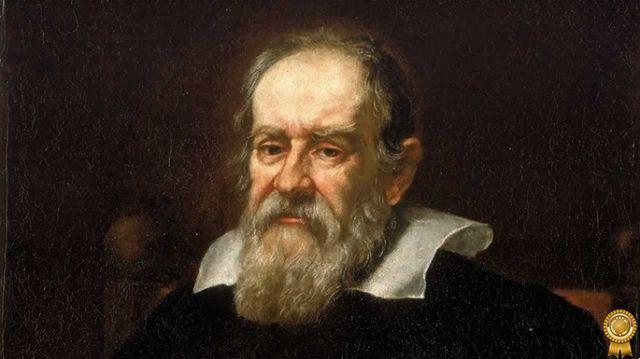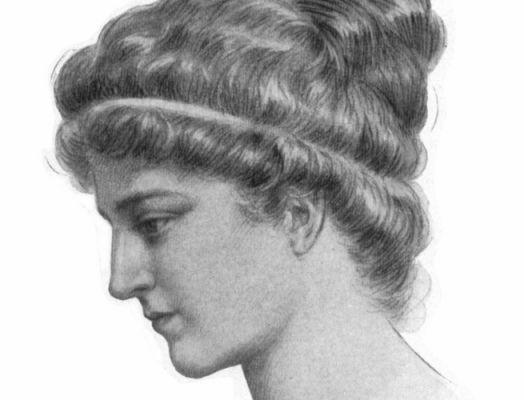Have you ever wondered what the world would be like without the theoretical contributions of Galileo Galilei, Marie Curie and Albert Einstein? It's because of them and others great scientists in history that we live in a more technological world, more comfortable and with a much higher life expectancy than the people of a few centuries ago.
Between physical and famous chemists, astronomers, Biologists, doctors e engineers that revolutionized science we find names recognized worldwide and others that did not have the same global prestige throughout history. Know now the 17 Greatest Scientists in the World and Their Most Impressive Discoveries!
1. Galileo Galilei

- Activity season: 1564 - 1642
- Occupation area: Physics, astronomy, mathematics, philosophy.
Undeniably one of the greatest scientists to ever walk the Earth, Galileo Galilei is recognized as the father of modern science🇧🇷 Among his discoveries and inventions are the support of the heliocentrism proposed by Copernicus (proving that the Earth revolves around the Sun), the Law of Falling Bodies, the improvement of telescope and the discoveries of the moons of Jupiter, the craters of the Moon, and the rings of Saturn. The Italian scientist was persecuted and imprisoned by the Catholic Church for his theories and died under house arrest in 1642 at the age of 77.
2. Isaac Newton

- Activity season: 1643 - 1727
- Occupation area: Physics, alchemy, mathematics, philosophy.
One of the first images that comes to mind when we think of Isaac Newton is an apple falling on his head and he discovering the law of gravity. But the scientist was much more than that. He was a physicist, astronomer and mathematician and is considered one of the greatest influencers for the scientific revolution. In 1687, he published the book "Mathematical Principles of Natural Philosophy", which included theories about the Law of Universal Gravitation.
3. Marie Curie

- Activity season: 1867 - 1934
- Occupation area: Radioactivity
A scientist who broke barriers in a male-dominated field, Marie Curie was a pioneer in area of radioactivity🇧🇷 Born in Poland, Curie studied at the prestigious Sorbonne University in Paris, where she earned degrees in mathematics and physics. Curie was the first woman to win the Nobel Prize and the first to win the prize in two different areas: chemistry e Physics🇧🇷 The scientist died due to constant radioactive exposure, one of her main lines of research that immortalized her in the history of modern science.
4. Nikola Tesla

- Activity season: 1856 - 1943
- Occupation area: mechanical and electrical engineering
If you know a little about electricity, you know the importance of alternating current system🇧🇷 The person behind the contributions of this invention is the Austrian electrical and mechanical engineer, inventor and futurist Nikola Tesla. He was one of the greatest geniuses in the field of electricity and among his greatest inventions are the Tesla coil, their contributions to the X-ray, neon lamp: radio and the remote control.
5. Albert Einstein

- Activity season: 1879 - 1955
- Occupation area: Physics
His name is synonymous with genius and his personality has made him one of the greatest icons of modern science. Time magazine named him the “person of the century” in 1999. Albert Einstein's inventions and fundamental laws of physics had a direct impact on issues such as the invention of lasers, telecommunication satellites and even cell phones. His main theory was that of relativity and even if you don't understand it very well, you've definitely heard that E = mc2.
6. Charles Darwin

- Activity season: 1809- 1882
- Occupation area: Biology, geology
A theory of natural selection of Charles Darwin radically changed biology and offered a new explanation of the origin of human beings. This scientist was one of the most influential in the fields of biology and geology in recent centuries, being considered one of the greatest and most influential researchers of all time. The book "The Origin of Species" of 1859 was a watershed in the biological sciences and is today one of the most important scientific books ever written.
7. Ada Lovelace

- Activity season: 1815 - 1852
- Occupation area: Mathematics
Despite being born and living in the early XNUMXth century, Ada Lovelace is considered one of the first computer programmers in history🇧🇷 This is because their contributions to the issues of algorithm resonate even today when we talk about computer science.
Lovelace was the daughter of the great British poet Lord Byron and Lady Wentworth. Her mother had a huge influence on her studies in the area of mathematics and the aristocratic genius had a huge contribution in the development of theory about Charles Babbage's Analytical Engine, a predecessor of the computer.
8. Stephen Hawking

- Activity season: 1942 - 2018
- Occupation area: Physics, cosmology
Few scientists have managed to move beyond academia and engage the masses with their life stories and complex theories. Stephen Hawking's "A Brief History of Time" spent 237 weeks on The Sunday Times bestseller list and his life story was portrayed in the Oscar-nominated film "The Theory of Everything." Hawking developed several studies on the Cosmos and os black holes, being one of the greatest influences on studies of the universe in recent decades.
9. Pythagoras

- Activity season: 570 d.C - 495 a.C
- Occupation area: mathematics, physics
Pythagoras was credited with numerous discoveries in mathematics, philosophy, astronomy, and music theory without ever documenting a single word about the subjects. The Greek scientist lived in Egypt for about 20 years, where he studied mathematics, religion and ancient Egyptian culture.
O Pythagorean Theorem it can be a headache for any high school teenager. But there's a reason it's become so central to our lives. This theorem is one of the most used mathematical relations in the area and influenced several other discoveries that are part of our day-to-day life.
10. carl linnaeus

- Activity season: 1707 - 1778
- Occupation area: zoology, botany
Little known to the masses, Carl Linnaeus was one of Sweden's greatest botanists, zoologists and physicians whose influence made him the "father of modern taxonomy🇧🇷 Taxonomy is that subject of biology that defines biological groups according to their common characteristics and names them. With more than 70 books and 300 scientific articles published, this scientist is undoubtedly one of the most important and influential in his field.
11. Rosalind Franklin

- Activity season: 1920 - 1958
- Occupation area: Chemistry
A discovery of the structure of DNA it was one of the most important scientific achievements in human history. However, the machismo present in the scientific academy erased the history and contributions of pioneers like Rosalind Franklin. British chemistry worked and influenced investigations into the structure of DNA, in addition to researching viruses, mineral coal and graphite.
However, his most famous work was overshadowed by the appropriation of scientists James Watson, Francis Crick and Maurice Wilkins who shared the Nobel Prize in Medicine in 1962. Their work was only possible after seeing photo 51 that Franklin had managed to obtain in 1952. photography in particular was a crucial element in the discovery of the structure of DNA.
12. Antoine Laurent Lavoisier

- Activity season: 1743 - 1794
- Occupation area: Chemistry
considered the "father of modern chemistry”, Lavoisier was one of the major contributors to the creation of the list of chemical elements. He also discovered the role of oxygen in combustion, named the elements Oxygen and Hydrogen, discovered 55 elements, participated in the construction of the metric system and discovered that if matter changes shape, its mass will remain the same. Ufa! The revolutionary scientist was wrongly killed during the French Revolution accused of selling adulterated tobacco.
13. Niels bohr

- Activity season: 1885 - 1962
- Occupation area: Physics
Danish physical scientist Niels Bohr was responsible for creation of the atomic model that we know today. In 1922, he won the Nobel Prize in Physics for his contributions to the structures of the atom and its radiation. Bohr was one of the founders of the European Organization for Nuclear Research, CERN, the largest particle physics laboratory in the world.
14. Werner Heisenberg

- Activity season: 1901 - 1976
- Occupation area: Physics
The German physicist Heisenberg was one of the most important figures in the development of quantum mechanics and their modern interpretations. In 1932, at just 31 years old, he received the Nobel Prize in Physics for his research related to quantum mechanics.
As a theoretician, the scientist wrote more than 600 scientific articles contributing in the fields of the atomic nucleus, ferromagnetism, among others. His work is arguably some of the most influential work for modern science and continues to have an impact on scientific developments to this day.
15. Louis Pasteur

- Activity season: 1822 - 1895
- Occupation area: Chemistry, medicine, biology
Have you ever heard of pasteurization? It is basically the process used to destroy microorganisms that can contaminate and spoil the food we consume. The name of this process is a tribute to its creator, Louis Pasteur, one of the most famous French chemists and scientists of all time.
It's because of this giant of modern science that we worry about whether our food is fresh and clean, which surgical instruments need to be sterilized, and which antibiotics and vaccines exist. Your contributions to the microbiology saved millions of people and increased mankind's life expectancy.
16. Alan Turing

- Activity season: 1912 - 1954
- Occupation area: Mathematics, computer science
Considered the father of computer science, Alan Turing was a mathematician and cryptanalyst who helped crack Nazi messages during World War II. The invention of the machine called "Bombe" shortened the war by about two years and saved more than 14 million people.
The contributions of Turing's theories to what we now know as computation cannot be measured. The scientist's life was depicted in the 2014 film "The Imitation Game" and revealed Turing's contributions to ending World War II and how the British government cowardly condemned him for his sexuality.
17. Sigmund Freud

- Activity season: 1856 - 1939
- Occupation area: Medicine, neurology, psychoanalysis
The creator of psychoanalysis he is also considered one of the greatest and most famous scientists who have ever passed through Earth. Sigmund Freud was an Austrian neurologist who contributed to the practice of modern psychology and continues to have great influence in many areas of medicine and mental health. The division of the unconscious proposed by him is perhaps his most recognized theory when he proposed the concepts of Ego, Superego and Id.









